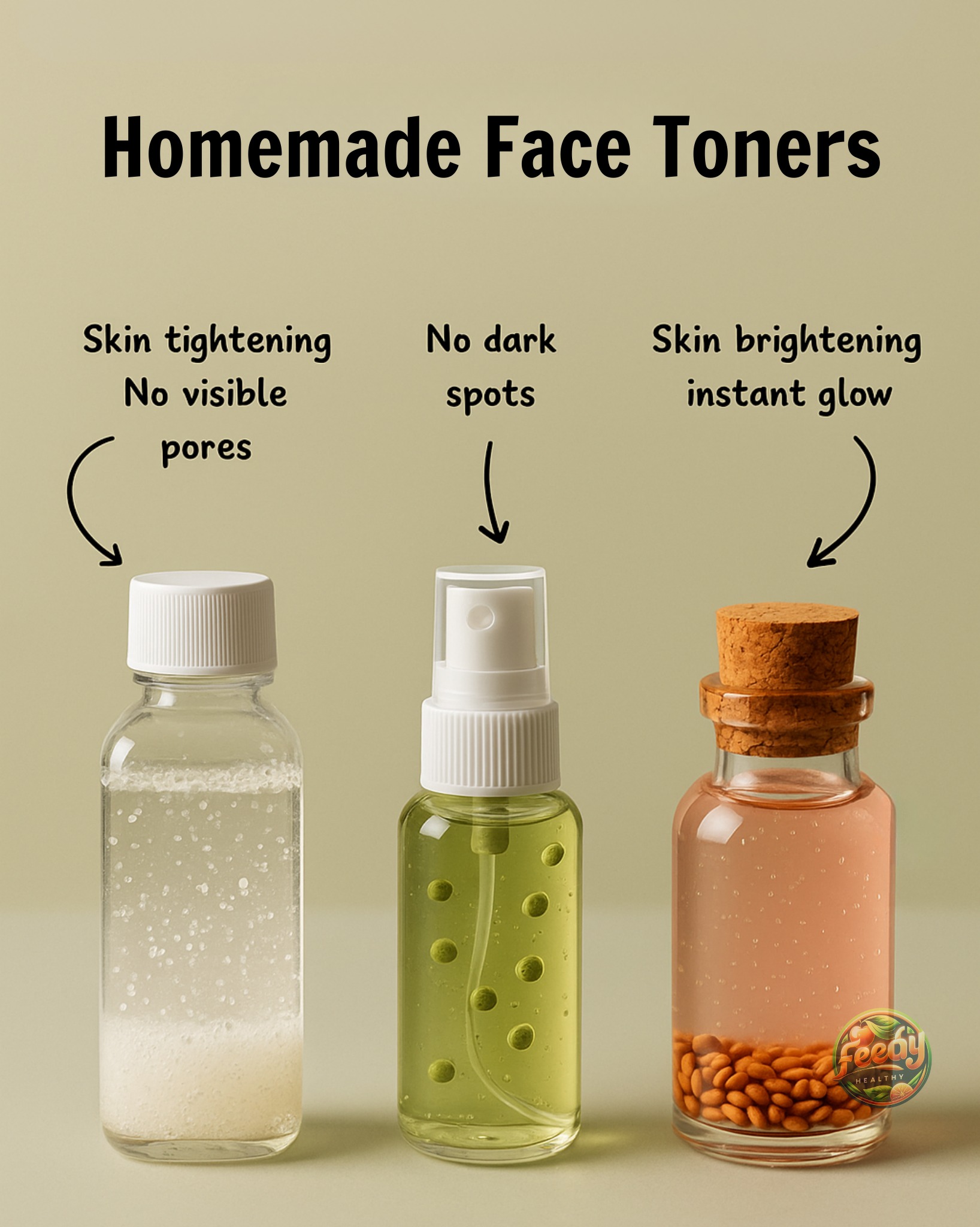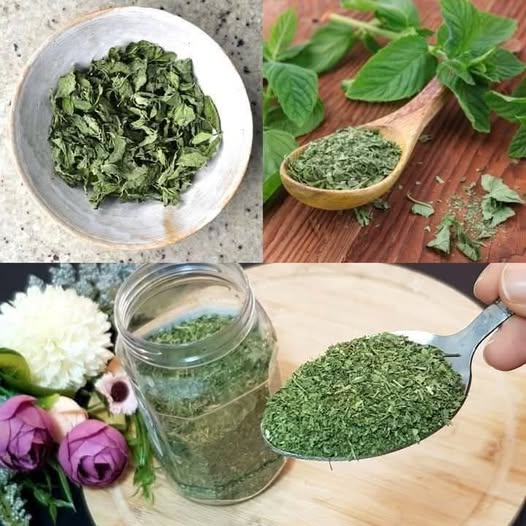When it comes to skincare, a good toner can make all the difference. It’s an essential step in the skincare routine that helps balance the skin’s pH, tightens pores, removes traces of dirt and oil, and prepares the skin to absorb the next skincare products effectively. While many toners available in the market promise fantastic results, they often come with harsh chemicals and preservatives that might irritate the skin. But did you know that you can create your own homemade face toners using natural ingredients? Homemade toners are a gentle and cost-effective alternative that can cater to your skin’s unique needs. In this guide, we’ll explore the best DIY face toners, their benefits, and how to make them at home.
The Importance of Toner in Skincare
Before diving into the DIY recipes, it’s essential to understand why toner is such a critical component in a skincare routine.
- pH Balance: Your skin has a natural pH of around 4.5 to 5.5. Many cleansers can disturb the pH balance of the skin, making it either too acidic or too alkaline. Toners help restore the skin’s natural pH, ensuring that the skin functions at its best.
- Hydration: Toners help hydrate and refresh the skin, preparing it to absorb serums, moisturizers, and other skincare products more effectively.
- Pore Minimizing: Toners help tighten the skin and minimize the appearance of pores, which gives the face a smooth, glowing appearance.
- Antioxidant Protection: Many natural ingredients in toners, such as green tea, witch hazel, and rose water, contain antioxidants that help protect the skin from environmental damage.
- Soothing: Natural toners help calm irritated skin, reduce redness, and promote a balanced complexion.
Benefits of Using Homemade Face Toners
Using homemade face toners offers several advantages:
- Natural Ingredients: Homemade toners use only natural ingredients, ensuring that they are free from harsh chemicals, fragrances, and preservatives found in commercial products.
- Customization: You can tailor the ingredients to meet your specific skin type, whether it’s oily, dry, sensitive, or combination.
- Affordable: Many of the ingredients used in homemade toners are readily available in your kitchen or local store, making them budget-friendly options.
- Freshness: Homemade toners are free from artificial preservatives and can be used fresh, ensuring maximum potency.
Now, let’s explore some fantastic homemade toner recipes, each designed to address different skincare concerns.
1. Cucumber and Rose Water Toner for Hydration
Cucumbers are rich in water, making them incredibly hydrating for the skin. Rose water, on the other hand, is known for its soothing and anti-inflammatory properties. Together, these ingredients work wonders for providing hydration, reducing puffiness, and promoting a fresh, dewy glow.
Ingredients:
- ½ cucumber (peeled and chopped)
- ½ cup rose water
- 1 tablespoon aloe vera gel (optional, for added hydration)
Directions:
- Blend the cucumber pieces in a blender until smooth.
- Strain the cucumber juice to remove any solid bits.
- In a clean bowl, mix the cucumber juice with the rose water.
- If desired, add aloe vera gel for extra moisture.
- Store the mixture in a spray bottle or small jar and refrigerate.
- Apply the toner to your face using a cotton pad after cleansing. Store the remaining toner in the refrigerator for up to a week.
Benefits:
- Hydrates dry skin
- Soothes irritated or sensitive skin
- Provides a refreshing and cooling effect
2. Green Tea and Lemon Toner for Oily Skin
Green tea is rich in antioxidants that help fight free radicals and prevent premature aging. Lemon juice, known for its astringent properties, is excellent for balancing oily skin, minimizing pores, and controlling excess oil production. This toner is ideal for those with oily or acne-prone skin.
Ingredients:
- 1 green tea bag
- 1 cup hot water
- 1 teaspoon fresh lemon juice
Directions:
- Steep the green tea bag in hot water for about 5 minutes, allowing it to cool to room temperature.
- Once the tea has cooled, remove the tea bag and add the lemon juice.
- Mix well and pour the solution into a clean container or spray bottle.
- Store it in the refrigerator to keep it fresh.
- Use a cotton pad to apply the toner to your face after cleansing. For extra convenience, store the toner in a spray bottle and spritz it directly onto the face.
Benefits:
- Controls excess oil production
- Reduces acne and blemishes
- Tightens pores and refreshes the skin
3. Apple Cider Vinegar and Honey Toner for Acne-Prone Skin
Apple cider vinegar (ACV) is a powerhouse ingredient in skincare. It has natural antibacterial properties, which make it perfect for acne-prone skin. Honey, on the other hand, is known for its moisturizing and healing properties. The combination of ACV and honey makes for a toner that not only fights acne but also restores moisture to the skin.
Ingredients:
- 1 tablespoon apple cider vinegar
- 1 tablespoon honey
- 1 cup filtered water
Directions:
- In a small bowl, combine the apple cider vinegar, honey, and water.
- Mix thoroughly until the honey dissolves completely.
- Pour the mixture into a clean bottle or jar.
- Apply the toner with a cotton pad to your face, focusing on acne-prone areas.
- Store the remaining toner in the refrigerator.
Benefits:
- Fights acne-causing bacteria
- Reduces inflammation and redness
- Balances the skin’s pH
4. Witch Hazel and Lavender Toner for Sensitive Skin
Witch hazel is a natural astringent that helps tighten the skin, minimize pores, and reduce inflammation. Lavender essential oil, known for its calming and soothing properties, is perfect for sensitive skin types that are prone to irritation. This toner works well for people with redness, rosacea, or sensitivity to harsh chemicals.
Ingredients:
- 2 tablespoons witch hazel (alcohol-free)
- 1 tablespoon lavender essential oil
- 1 cup distilled water
Directions:
- Mix witch hazel, lavender essential oil, and distilled water in a clean container.
- Stir the ingredients well to combine.
- Pour the toner into a spray bottle for easy application.
- Store in a cool, dark place and use within two weeks.
Benefits:
- Soothes and calms irritated skin
- Reduces redness and inflammation
- Balances the skin without drying it out
5. Chamomile and Honey Toner for Dry Skin
Chamomile is known for its anti-inflammatory and calming properties, making it an excellent choice for dry and irritated skin. Combined with honey, a natural humectant that attracts moisture to the skin, this toner helps nourish and hydrate the skin while reducing inflammation.
Ingredients:
- 1 chamomile tea bag
- 1 tablespoon honey
- 1 cup hot water
Directions:
- Brew the chamomile tea by steeping the tea bag in hot water for 5 minutes.
- Allow the tea to cool to room temperature.
- Remove the tea bag and add honey to the cooled tea.
- Stir well to combine the honey into the tea.
- Store the toner in a spray bottle or glass jar.
- Apply with a cotton pad to your face after cleansing.
Benefits:
- Hydrates and moisturizes dry skin
- Reduces skin irritation and redness
- Calms and soothes inflamed skin
6. Rosewater and Glycerin Toner for Glowing Skin
Rosewater is often used in skincare for its ability to balance and hydrate the skin. It also helps tighten pores and reduces the appearance of redness. Glycerin, a humectant, draws moisture into the skin and ensures that it stays hydrated. This toner is perfect for anyone looking to achieve glowing, dewy skin.
Ingredients:
- 1/4 cup rosewater
- 1 tablespoon vegetable glycerin
- 1/2 cup distilled water
Directions:
- Mix the rosewater, glycerin, and distilled water in a clean container.
- Stir the mixture until it is well-combined.
- Pour the toner into a spray bottle or jar for easy storage.
- Apply the toner with a cotton pad to your face and neck after cleansing.
Benefits:
- Provides hydration and helps lock in moisture
- Reduces redness and calms irritated skin
- Gives the skin a natural glow
Tips for Using Homemade Toners
- Patch test: Always do a patch test before applying any homemade toner to your entire face, especially if you have sensitive skin or allergies to certain ingredients.
- Consistency: For the best results, use the toner consistently as part of your daily skincare routine.
- Storage: Homemade toners are free from preservatives, so make them in small batches to ensure freshness. Store them in the refrigerator to prolong their shelf life.
Conclusion
Homemade face toners are an excellent way to care for your skin using natural, budget-friendly ingredients. Whether you’re trying to fight acne, control oil, hydrate dry skin, or reduce redness, there’s a homemade toner recipe for every skin type and concern. The key is to tailor your toner to your unique skin needs and enjoy the nourishing benefits that nature has to offer. So, say goodbye to harsh chemicals and expensive skincare products and embrace the simplicity and effectiveness of homemade toners for a glowing, healthy complexion!





